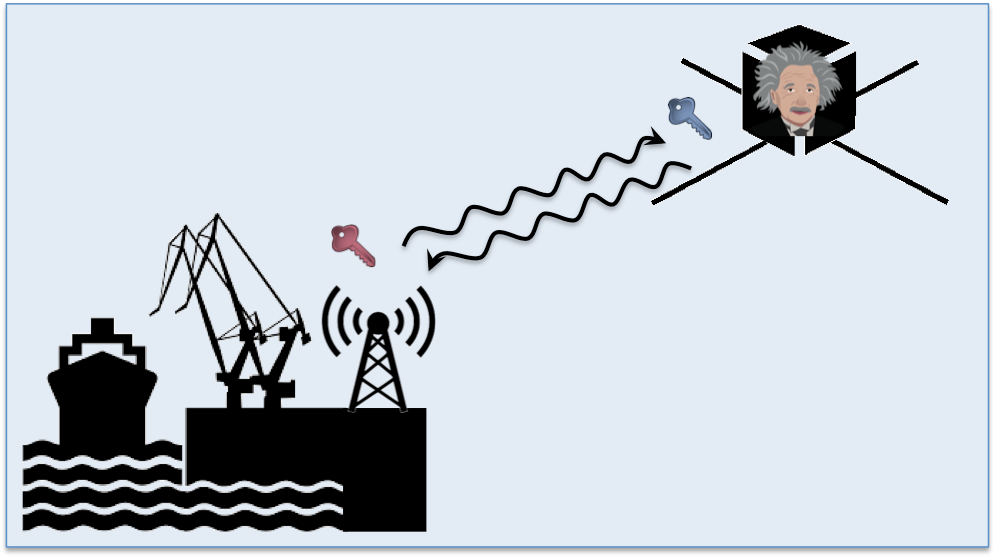The objective is to perform a feasibility study of a quantum-mediated secure port-ship communication link for autonomous driving. Quantum communications is redefining the communication standards, making them secure for long-term requirements, in particular protecting against potential attacks, including notably those expected from quantum computers. Contrary to the most widely used cryptographic systems (RSA being the most famous), quantum key distribution (QKD) consists in the distribution of keys in a way, which can be proved to be information theoretically secure. QKD reached the commercial level on ground fibre links. Key exchange rates exceeding the million secure bit per second was demonstrated on fibre links. QKD is currently also being developed for space channels, aiming at QKD for point-to-point links that are difficult or impossible to implement via fibers or even over global distances in a future world-wide QKD network. A secure communication channel is mandatory for autonomous navigation. This can for example be achieved via a satellite (a cubesat) in a Low Earth Orbit (LEO) establishing a key either by exchanging weak coherent pulses or by sending entangled photons to a ground station and eventually directly to the ship. Quantum communication protocols then guarantee that the two keys at on shore and on board are possessed only by the two parties, thus allowing for a secure encryption. Satellite/cubesat quantum communication is not totally new (Bedington doi:10.1038/s41534-017-0031-5) but here the point is creating a direct link between two crucial topics in the context of the European efforts: quantum communication in space on the one hand and autonomous navigation on the other hand, thus securing a critical infrastructure by using a small satellite. Three work-packages are foreseen: 1. Ship. Definition of user requirements. 2. Quantum Channel. Feasibility analysis of quantum link: spacecraft - ship. 3. Cubesat. Feasibility analysis of space segment.

